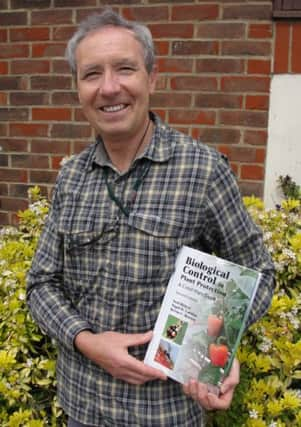Littlehampton’s Neil is passionate about beating pests


Now it’s also harnessed to his years of knowledge and experience as one of the foremost experts in the field of biological control, using nature, rather than chemicals, to tackle pests threatening industrial-scale crops or the humbler harvest in our gardens.
His work for Littlehampton-based horticulture business Fargro takes Neil not only to farms and huge glasshouse complexes, some where no chemicals are used, to the grounds and gardens of royal palaces, zoos and institutions such as Kew Gardens. He shares his expertise in tackling all manner of pest problems, gives lectures and leads training courses.
Advertisement
Hide AdAdvertisement
Hide AdNeil, 56, who still lives across the yard from the family farmhouse in Franciscan Way, Littlehampton, completed a revised version of Biological Control in Plant Protection earlier this year and it has just been published, The original 2003 version sold out two print runs totalling 7-8,000 copies and has become a standard text for gardeners, growers, students and entomologists.
The revision is timely, given a new EU directive ordering all those working in agriculture, horticulture and animal husbandry to rely firstly on biological methods and to turn to chemicals only as a last resort.
The overall approach is known as integrated pest management, bringing together the three Ps of biological control – parasites, predators and pathogens (organisms which infect the pest) – with a sound culture of growing plants in tidy, weed-free conditions, and the use of synthetic chemicals only as the last line of defence.
“It’s all changed since 20 years ago, when people wouldn’t have thought twice about using chemicals.
“Just as with anti-biotics, pests are developing resistance to some chemicals and biological control has been proved to work and is money well spent to get the job done,” said Neil.